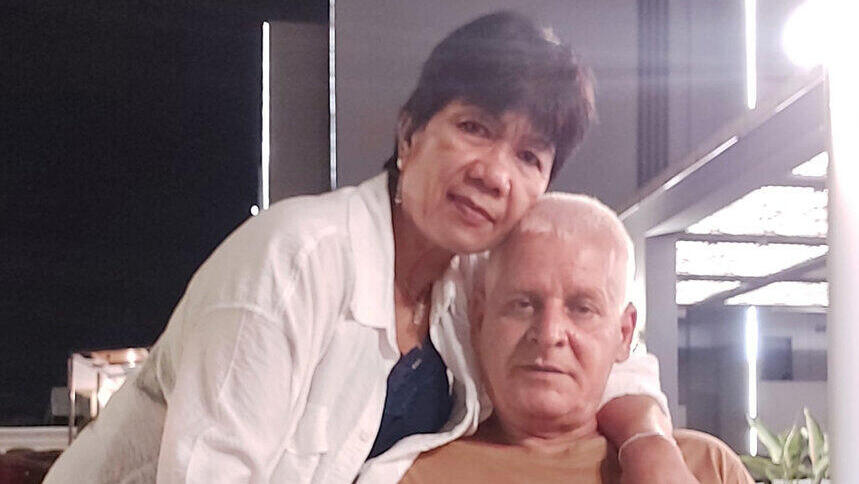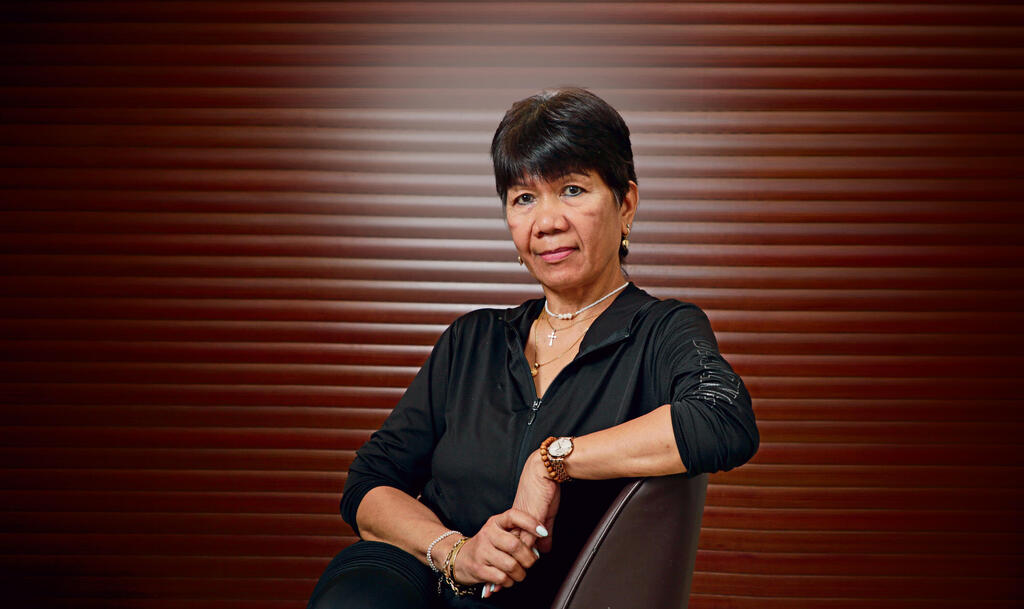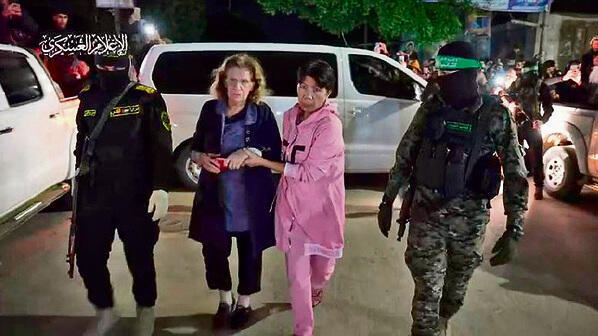"On the morning of October 7, we woke up early. We were visiting good friends in Nirim, and we had plans to spend the day and have a barbecue. So, at five in the morning, my husband Gideon and I were already awake. At six-thirty, we heard the rocket sirens. Gideon told me there was nothing to worry about, but I found it suspicious because I had already heard shots from outside. I told him to come to the safe room, but at some point, he said he just wanted to see what was happening outside. I asked him, 'What is there to see outside?' but he went out – and then I heard two shots."
Read more:
Noralin "Nataly" Babadila, 60, also known as Noralin Agojo, and her husband Gideon lived in Yehud and would visit Kibbutz Nirim almost weekly for the past two years to visit their friends: Tess, who was also born in the Philippines like Noralin, Tess's Israeli husband Doron Meir, and their daughters Shelly and Mor. That particular Saturday was special as Kibbutz Nirim celebrated its 77th anniversary.
Noralin and Gideon arrived as usual at their friends' home and borrowed their daughter Shelly's apartment in the youth housing on the Kibbutz. "I heard the shots, and I'm inside the house screaming, 'Gideon, come in. Gideon, where are you? Why did you leave me alone?' But he didn't answer and didn't come in, and then I heard our car exploding," she recounts.
A short time later, the apartment caught fire. The safe room's door was not closed, and smoke began to enter. The terrorists were already inside the house. She decided to try to escape through the safe room window. "I jumped from the window straight into the hands of the terrorists, who stood there with their guns drawn," she recalls.
"There were six terrorists there who started arguing about what to do with me. I understood from their hand gestures that one wanted to kill me, and the other wanted to kidnap me. I told them, 'I'm Filipino, not Israeli, please don't kill me,' and I showed them the cross necklace around my neck." Noralin was loaded into a small truck. "They loaded the bodies of murdered Israelis in the back, piled them in the rear seat, and on the car's roof," she said.
The terrorists asked her to wear a head cover, and they drove her to Gaza. "After several stops on the way, we reached a hideout apartment in Gaza, where two more kidnapped women, Karina Angel, and Irena Tati, were already there," Noralin recalls. "The first thing I remember is a large picture of Gilad Shalit on the wall of the apartment. I asked one of the kidnappers: 'What am I doing here? And for how long?' He replied that it could take weeks, a month, or a year. I started crying."
Five terrorists guarded them. "We were in darkness all day, no electricity, no water, and almost no food," Noralin says. "Sometimes they gave us a biscuit in the morning, and that was all we had to eat that day. The water had a bad smell. There was nothing to talk about in terms of a shower; we didn't bathe for 23 days. You're constantly in fear. The men were shouting all the time and every moment I thought they would come in and shoot us all. I couldn't sleep there at all. There were also bombings by the IDF and rockets fired by Hamas. The floor shook every time, and the house felt like it was going to fall apart."
For 23 days, she stayed there, believing that her husband was kidnapped like her, holding onto the hope that they would soon be released and reunited. "One day, the terrorist in charge arrived and told us to wear head covers because we were being moved to another place. We went outside and passed through the market, which was crowded with people. At any moment, we could have been exposed."
In the end, they did not go to an apartment but to a separate facility at Nasser Hospital in Khan Yunis, where they encountered additional kidnapped individuals. "They brought us into a room where the Konio family was – parents Sharon and David, and their 3-year-old twin daughters Emma and Yuly, and also Hanna Katzir was there. With time, we became a sort of family. When Sharon had a hard time with the daughters, we took them so they could rest. Over time, we understood that more kidnapped individuals were held in the hospital compound. I met several older women there, and also the children Erez and Eitan."
Staying at the hospital was much easier until a dreadful moment arrived. "Three days before the release of Sharon Konio and the twins, they separated David from the family," Noralin recounts. "That moment shattered all of us. The daughters screamed and cried; there was a final hug, a very difficult moment."
3 View gallery


Noralin 'Nataly' Babadila with her husband Gideon who was murdered by Hamas terrorists
(Photo: Courtesy)
When the ceasefire took effect, Noralin waited for her turn. On November 29th, it happened. "I was with Ofelia Roitman in a car; we stopped on the road, the terrorists said there was a delay, and suddenly a bunch of people arrived and started banging on the windows. I was sure they would kill us any moment," she recounts. "Only when I saw the soldiers at the Rafah checkpoint, I was able to breathe normally again. I hoped to reunite with Gideon shortly, but when I arrived at the hospital, my brother was waiting for me, telling me that he was already murdered on October 7th. I felt like cold water was poured on me. At that moment, she also learned that her friend Tess, also lost her husband and daughter who were murdered that Saturday. Since then, the two widows support each other.
With teary eyes, Noralin talks about the immense pain of losing her husband and the decision to stay in Israel. "Despite everything, I didn't consider leaving," she says. "I don't want to leave Gideon. It's tough. I talk to him every day, asking him to look after me, to help me from above."




